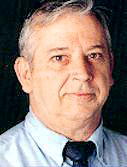The television chatter people are having a ball analyzing the recent election. I can sum it up in one sentence: More people liked, agreed with and trusted George Bush than liked, agreed with and trusted John Kerry. End of story.
Unless you happen to be a professional in the business of managing political campaigns, no further analysis is needed.
It is useful to knock down some of the canards that always arise in the post-election bull sessions. One is that the "Christian Right," whatever that is, elected Bush. Nonsense. Christians and non-Christians voted for both men. This nation is not divided into Republican Christians and Democratic pagans.
Furthermore, one has to remember that the graphic map showing red and blue states reflects the Electoral College vote, which is a winner-take-all system. In other words, plenty of people in the blue states voted for Bush, and plenty of people in the red states voted for Kerry.
Politically, we are not as divided as the chattering class seems to think. If you look at the past four presidential elections, the two major parties are even. The overwhelming majority of Americans don’t set their britches on fire over elections. The fact that you vote for Tweedledee and I vote for Tweedledum doesn’t mean we can’t still be friends and have a beer together.
It’s only the ideologues — who, thank God, remain a small minority — who think the world ends if their side loses an election.
And that brings up another canard, that this election was unduly marked by hatred. I never saw any. True, some people passionately disliked Bush and some passionately disliked Kerry, but that’s always true in American politics. Neither man in this election was demonized the way poor Barry Goldwater and George McGovern were in their election bids. And none of our elections in the 20th and 21st centuries compares in mudslinging and viciousness with the presidential campaigns of the 19th century. American politics has always been a rough-and-ready game.
Only once in our history has a presidential election caused people to go for their guns, and after 600,000 good men on both sides died, we seemed to have learned our lesson.
The valuable thing about America is that the losers don’t really lose anything, except perhaps a few patronage jobs. John Kerry will go right on enjoying his good life in his five houses and, after sober reflection, will probably decide it is just as well that it is Bush and not he who has to figure out a way to get out of Iraq. The rest of us are the same after an election as we were before, regardless of the outcome.
It is to the credit of the American people that their families, jobs and local communities are more important to them than national elections. The cable-television media, because they have to talk so much, get obsessed with national elections. Most Americans don’t. Most of us are glad this one is over.
Finally, it’s useful to remember that neither the Republican Party nor the Democratic Party is monolithic. Mr. Bush is likely to have trouble with liberal Republicans voting with Democrats, while the Democrats might see some of their few remaining conservatives side on occasion with the Republicans.
With our system of three separate and independent branches of government, senators and representatives are not beholden to the president or to their political party. Their allegiance is to their constituents and to the Constitution.
That’s proven to be a far better system than the parliamentary model that most of the world’s democracies are stuck with. In the parliamentary model, the legislative and executive branches are the same. This means the country can lurch from socialism to capitalism, or vice versa. In most countries, it encourages a multiplicity of parties, and many countries are always governed by coalition governments.
Our system is by far more stable. We sometimes complain that there is little real difference between Republicans and Democrats, but this similarity at least prevents upheavals. No matter who wins, we get neither Utopia nor Armageddon. And I like that.
 Charley Reese [send him mail] has been a journalist for 49 years, reporting on everything from sports to politics. From 1969—71, he worked as a campaign staffer for gubernatorial, senatorial and congressional races in several states. He was an editor, assistant to the publisher, and columnist for the Orlando Sentinel from 1971 to 2001. He now writes a syndicated column which is carried on LewRockwell.com. Reese served two years active duty in the U.S. Army as a tank gunner. Write to Charley Reese at P.O. Box 2446, Orlando, FL 32802.
Charley Reese [send him mail] has been a journalist for 49 years, reporting on everything from sports to politics. From 1969—71, he worked as a campaign staffer for gubernatorial, senatorial and congressional races in several states. He was an editor, assistant to the publisher, and columnist for the Orlando Sentinel from 1971 to 2001. He now writes a syndicated column which is carried on LewRockwell.com. Reese served two years active duty in the U.S. Army as a tank gunner. Write to Charley Reese at P.O. Box 2446, Orlando, FL 32802.



